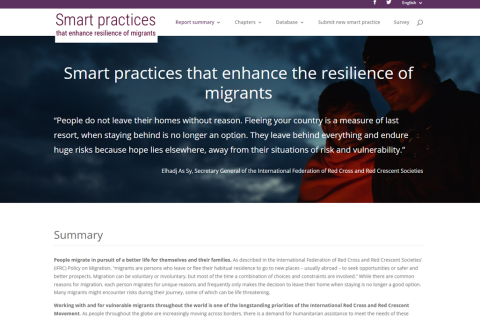Library
The IFRC commissioned this report as part of its mandate to share knowledge and skills and to ensure that all National Societies have the knowledge, resources and capacities to support vulnerable migrants. This report is based on interviews with over 70 people representing 30 countries, five country missions, and extensive desk research. It compiles 59 smart practices that address the needs of migrants across their journeys. It also presents 13 smart operational enablers, which help National Societies and other actors to ensure they have the right human, technical and financial capacities to identify and address migrants’ needs. The report is intended as a knowledge base that helps National Societies and other actors design, adapt and implement smart practices that are appropriate to their specific situations. This report does not provide a comprehensive list of all smart practices, and can therefore not be used to develop a gap analysis. Neither does it make recommendations or provide guidelines on how to address specific needs of migrants, but rather, provides examples of how other actors have addressed similar needs. The report is not intended as a thorough needs or vulnerability assessment of migrants, but uses common needs of migrants as a framework to present smart practices. This is a living document; the IFRC will continue to identify and share smart practices, as National Societies and partners test, implement and scale up new initiatives.
